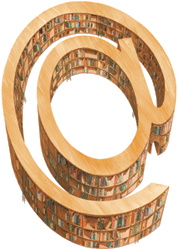Rise of literacy
Europeana will realize a thematic channel devoted to manuscripts, books and printed materials. ICCU participates together with other 11 cultural institutions in Europe.
On the 1st of September 2017 Rise of literacy is started. It aims to create a thematic collection on the rise of literacy in Europe, by aggregating rich textual materials from 12 European cultural heritage organizations. The materials covers medieval manuscripts from the 4th to 15th century, printed books dating from the early 16th century till the end of 19th century, and journals and newspapers from the 18th century to mid-20th century. The materials are representative of the main European languages including Romance, Germanic, Nordic, Slavic, Celtic and Hellenic.
The selected material demonstrates the development of written European languages (grammars, dictionaries, text-books) and of vernacular literacy among the different social classes together with the evolution of languages in different formats and genres (manuals, travel literature, children’s books, folk tales etc).
The project approximately 1,500 manuscripts, 2,600 books and other print materials (pamphlets, postcards, flyers, booklets), and more than 200,000 pages of newspapers and magazines will have been digitized. All digitized items will be accessible via the Europeana platform and re-usable by third parties for non-commercial (NC) purposes and/or that are completely open.
On the 1st of September 2017 Rise of literacy is started. It aims to create a thematic collection on the rise of literacy in Europe, by aggregating rich textual materials from 12 European cultural heritage organizations. The materials covers medieval manuscripts from the 4th to 15th century, printed books dating from the early 16th century till the end of 19th century, and journals and newspapers from the 18th century to mid-20th century. The materials are representative of the main European languages including Romance, Germanic, Nordic, Slavic, Celtic and Hellenic.
The selected material demonstrates the development of written European languages (grammars, dictionaries, text-books) and of vernacular literacy among the different social classes together with the evolution of languages in different formats and genres (manuals, travel literature, children’s books, folk tales etc).
The project approximately 1,500 manuscripts, 2,600 books and other print materials (pamphlets, postcards, flyers, booklets), and more than 200,000 pages of newspapers and magazines will have been digitized. All digitized items will be accessible via the Europeana platform and re-usable by third parties for non-commercial (NC) purposes and/or that are completely open.
